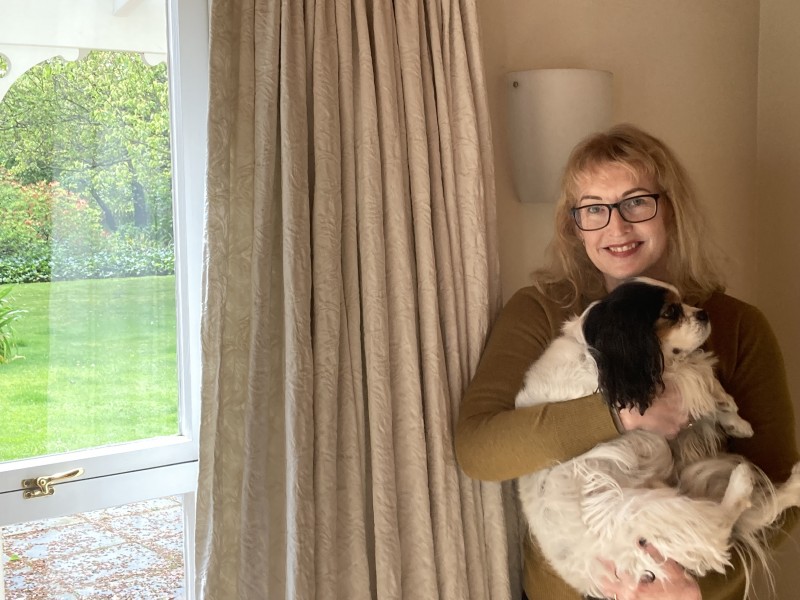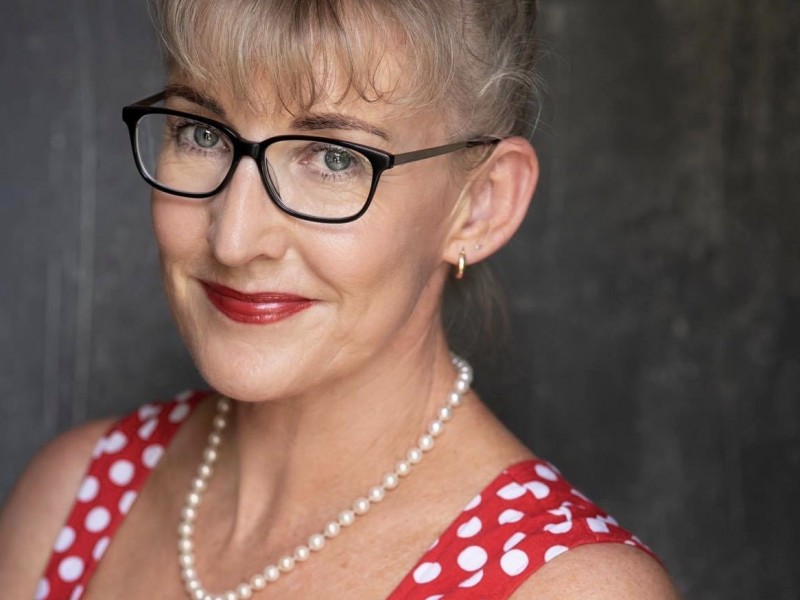She works as a psychiatrist in Christchurch in the day, and at night is a prolific improv performer and stand-up comedian whose talent has taken her all around the country. She was also writing a book on mental health – and gearing up for another round of fringe festivals.
But in May 2021, everything changed.
“I was rubbing my ribs one night and I found a lump, just to the side of my breast and went uh, that doesn’t feel right. And the next day I felt under the armpit and felt a lump there as well.
“I was pretty sure it was going to be cancer from the beginning.”
Prendergast was diagnosed with stage 2, grade 3 ductal carcinoma with lymph node involvement. She says the cancer was relatively serious – but true to form – she got to work.
“The night I found out I had cancer, I just remember just lying there going okay, this is a really good thing I can have for my next solo show. I might write a book about it. Maybe it would be good to do a documentary about it. I wonder what I’ll find out about having cancer that I can share with people.”
A documentary crew is now following her around, documenting her treatments. She’s journaling her experiences, in hope that she can publish a book on her findings and help others who might be in a worse position.
“At the moment there’s a lot of, oh I went to see my oncologist, or I hate being on these medications, or really grieving my old life, blah blah blah.”
One of the concepts she became enamoured with was decision regret. With a condition like cancer, time is short, and information is vital. She says as a cancer patient, decisions are being made constantly without the proper frame of mind to really comprehend what you’re being told.
“I was talking to my surgeon at a follow-up appointment and she thinks that she's genuinely given all of the information possible to the patient, but they don't often realise that the patient's only taken on board a small amount of that information.
“It's just so much information. Um, so you missed half of it when it was being told to you.”
She experienced this first- hand when she was told she wouldn’t be receiving chemotherapy first – and instead would be getting surgery to remove cancerous cells in her lymph nodes.
“I had a bit of a kind of shock to process that my treatment plan was way different than what was the original plan. So that meant that I hadn't thought about surgery, questions to ask. I wasn't in a surgery mindset.”
Prendergast was born in Wellington in 1969 – and grew up in the Karori region. She remembers fondly a youth spent exploring the wilderness of the region, – being able to go out with friends, – riding horses and building forts.
“It was living in a city suburb, with kind of a rural feel.”
Prendergast lives on the outskirts of Christchurch on a lifestyle block. Horses remain a large part of her life – as she wanted her daughter to experience the same joy and lifestyle the animal brought to her youth.
“It's very cool riding horses and cantering down the road or down the beach. It's quite a liberating feeling. The riding and being sort of one with an animal.”


